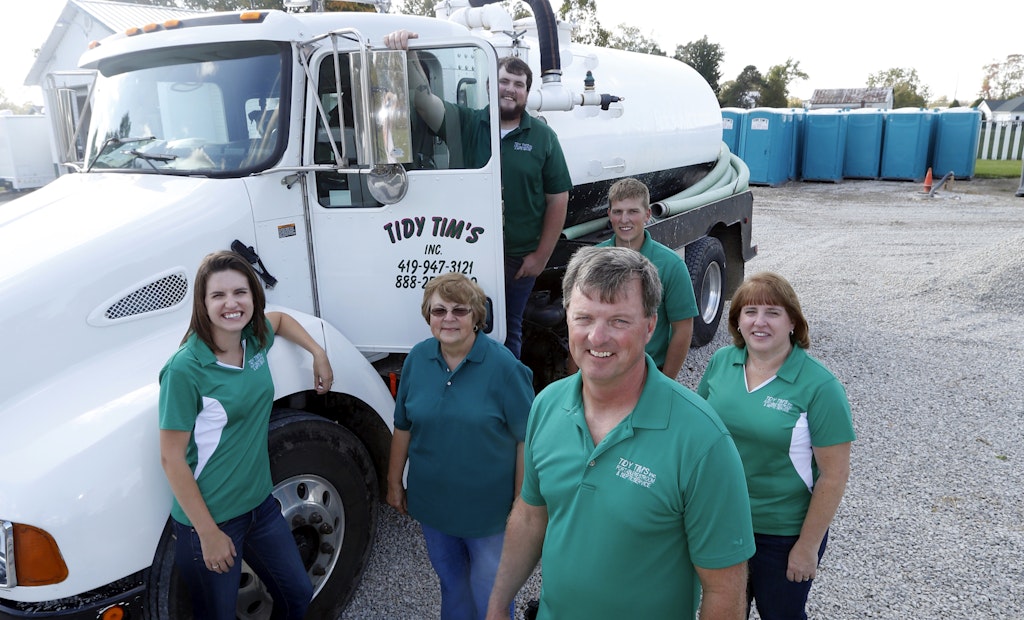Interested in Onsite Systems?
Get Onsite Systems articles, news and videos right in your inbox! Sign up now.
Onsite Systems + Get AlertsEvery septic tank inspection is important to Tim Hack, co-owner of Tidy Tim’s, a septic tank and portable restroom operator in Mount Gilead, Ohio.
“I feel like we’re doing the homeowner a service,” says Hack, who co-owns the company with his wife, Patty. “I’m not trying to insult the intelligence of our customers, but I’d say 50 percent of them don’t know much about how their septic system works. We’re not just there to inspect it, but to educate the homeowner on how it works and why it does what it does.”
Inspections have been an integral part of Tidy Tim’s business since 2015 with the onset of a state law requiring periodic septic inspections.
“I actually had to hire my son-in-law to do them,” Hack says. “I wasn’t able to keep up. It’s been good for our business.”
Inspections account for less than 5 percent of the company’s sales, but that’s not the end of the story. Their value is multiplied many times over when they give rise to bigger jobs. The three most common offshoots of inspections are pumping, repairs and installations. Hack takes a straightforward approach when suggesting additional services, preferring a strategy of honesty over hard sell.
“I’m not big into high pressure. I don’t need to pressure people,” he says, adding that he does a majority of the pumping for customers, while son-in-law Zach Gossett handles the inspections.
Gossett isn’t high pressure, either. He’ll mention to the customer that the tank needs to be pumped and offer to do the job when he’s through with his inspection. For existing customers, Tidy Tim’s keeps records that indicate when pumping is recommended and schedules the two services together.
“If the customer would like both services done at the same time, and we need to do the inspection prior to pumping, I go out and do both jobs,” Hack says.
The most common repair work that results from inspections is distribution box replacement. When the precast concrete boxes — oftentimes installed years earlier with the septic system — show signs of deterioration, Tidy Tim’s replaces them with plastic boxes from TUF-TITE or Polylok.
“Typically when we put a plastic distribution box in, it’s a nonissue. Plastic doesn’t rot. It doesn’t deteriorate. The only thing plastic doesn’t like is being hit by a lawn mower,” Hack says. It’s one of the standard jokes he uses to get a serious point across, and it usually draws a chuckle from his customers.
Along with pumping and repairs, inspections also lead to an occasional installation job.
“We’ve got a couple of new septic systems we’ll be putting in sometime this summer as a result of doing an inspection because the systems weren’t working,” Hack says.
In Tidy Tim’s home base of central Ohio, some of the septic systems are the original units installed in the 1940s, coinciding with the debut of indoor plumbing.
“Anybody in our industry knows that the septic system is no different than anything else — it has a life expectancy. They don’t last forever. A lot of those systems are not anywhere near today’s standards. That’s why we’re doing inspections,” Hack says.
Tidy Tim’s reputation, more than its marketing strategy, keeps business flowing in for the family-owned and -operated company.
“Sixty to 70 percent is just word-of-mouth and being in business for 24 years,” Hack says. “We take great pride in doing a good job.”






